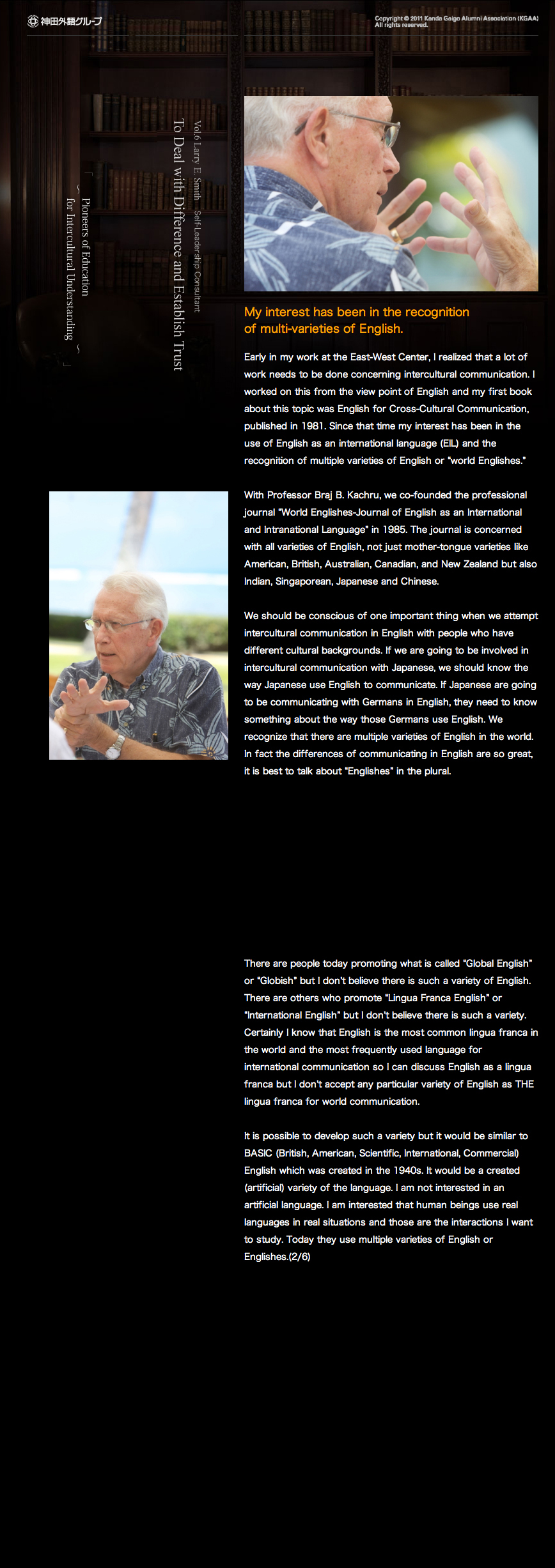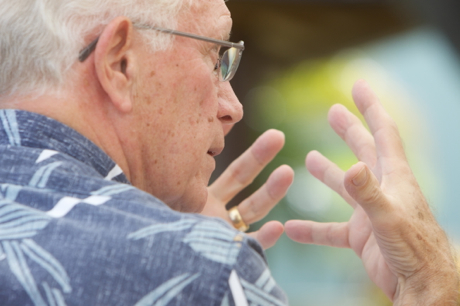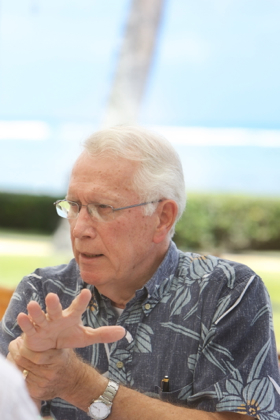

Copyright © 2011 Kanda Gaigo Alumni Association(KGAA). All rights reserved.

Early in my work at the East-West Center, I realized that a lot of work needs to be done concerning intercultural communication. I worked on this from the view point of English and my first book about this topic was English for Cross-Cultural Communication, published in 1981. Since that time my interest has been in the use of English as an international language (EIL) and the recognition of multiple varieties of English or “world Englishes.”

With Professor Braj B. Kachru, we co-founded the professional journal “World Englishes-Journal of English as an International and Intranational Language” in 1985. The journal is concerned with all varieties of English, not just mother-tongue varieties like American, British, Australian, Canadian, and New Zealand but also Indian, Singaporean, Japanese and Chinese.
We should be conscious of one important thing when we attempt intercultural communication in English with people who have different cultural backgrounds. If we are going to be involved in intercultural communication with Japanese, we should know the way Japanese use English to communicate. If Japanese are going to be communicating with Germans in English, they need to know something about the way those Germans use English. We recognize that there are multiple varieties of English in the world. In fact the differences of communicating in English are so great, it is best to talk about “Englishes” in the plural.
There are people today promoting what is called “Global English” or “Globish” but I don’t believe there is such a variety of English. There are others who promote “Lingua Franca English” or “International English” but I don’t believe there is such a variety. Certainly I know that English is the most common lingua franca in the world and the most frequently used language for international communication so I can discuss English as a lingua franca but I don’t accept any particular variety of English as THE lingua franca for world communication.
It is possible to develop such a variety but it would be similar to BASIC (British, American, Scientific, International, Commercial) English which was created in the 1940s. It would be a created (artificial) variety of the language. I am not interested in an artificial language. I am interested that human beings use real languages in real situations and those are the interactions I want to study. Today they use multiple varieties of English or Englishes.(2/6)